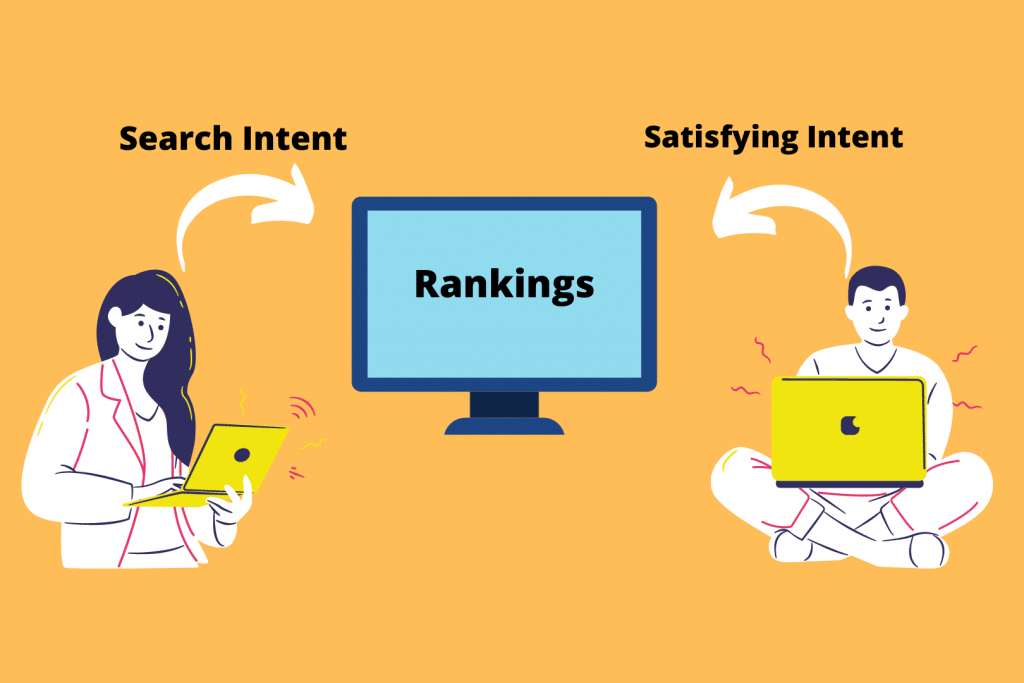As a small business tackling SEO, you’re in a tight spot.
Everywhere around you, you’ll see digital behemoths soaking up all the online traffic and ranking for your desired keywords.
These are websites with absurd levels of authority. Websites that will keep out-scaling you just because of their sheer size.
Have you seen something like this before… perhaps outside of the online world?
Yep, it’s the same paradigm…
The rich, simply keep on getting richer.
And if you’re not rich already, well, you might as well give up. You lost your chance to grow big like 10 years ago when there was still opportunity on the internet.
The thing is though, that’s only true if you decide to go toe to toe with these massive sites in your SEO campaigns.
But what if, instead, you implement an entirely different strategy, one tailored for your small business to score wins even in the shadow of highly authoritative sites.
As the head of the leading SEO agency, Levelu, using these 5 little-known techniques has helped my clients dominate rankings and bring on more customers than they can handle.
By using these same 5 nifty tips, you can find the opportunities your competitors fail to see and achieve steady gains for your organic traffic.
But enough chit-chat, let’s dive straight into business.
1. Don’t fight with Giants(unless you want to waste your time)
Big websites have deep pockets they can funnel into their content marketing.
In perspective, this means they have teams of content writers pumping out highly ranking webpages, and SEO pros to back them up. They are producing at a sheer scale you’ll never be able to realize unless you grow as big as they have.
Therefore, you need to know that you simply can’t do the same things they can, because you don’t have the resources they have.
It would be like trying to beat an f1 driver on their track while you drive your Ford pickup truck. No matter how good you are, you can’t beat them on the track. However, not all hope is lost.
The whole game changes once you go off-road.
When you compete in an area they ignore, you’ll make remarkable gains in your white label SEO campaigns.
This is the philosophy you should be carrying out throughout your entire process.
2. Be Aggressive in your link building to become an Authority.
Right now, as a small business with an even smaller website, you are doomed if you don’t work on building authority.
Over the last few years, there have been many reports about newer websites having a hard time getting their content on Google’s index.
The usual modus operandi is to “just wait, and be patient,” however, that’s hopeful thinking. Google is actively refusing to index your website’s content because it doesn’t think it’s important.
And if you can’t get indexed, there your not going to rank. Period.
It’s the sad nature of things, but that doesn’t mean you can’t find success.
The solution: Be as aggressive as possible with your link building(while avoiding blackhat shenanigans).
And there are many ways to build links, however, by far, the only one you should be putting your attention into is guest posting.
You’re a small business owner, you simply don’t have time to do the 100 other link-building advice out there(which also aren’t as effective).
Doing things like making an infographic or research that others link two simply isn’t going to work unless you’re already big. All that work you would into producing these things will go to waste the moment you realize nobody is looking for you and nobody can find you because you’re not ranking.
Instead, focus on timeless, and proven strategies that are guaranteed to bring your business results. For a complete no-nonsense guide on guest posting, see here. In the guide, you will learn how to find the best guest posting opportunities, how to do outreach, and what content you should be writing.
3. Target Keywords that Everyone Else ISN’T
These days, there’s too much content on the internet.
And because of that, a lot of websites are struggling to get indexed by Google, and for good reason.
Google doesn’t need to get all the content they see indexed. In most cases, there are already plenty of other authoritative web pages covering the same topic.
So, what’s a small business website to do to get noticed?
Simple, target keywords that are underserved until you have some authority to back you up.
This means keywords that have low traffic and keyword difficulty, and these are more often than not, long-tail keywords.
The thing is, with the sheer number of people searching on the internet, every day Google sees 15% unknown keywords.
These are all things people want to see, however, topics that aren’t being covered currently.
By targeting these keywords, you position yourself to offer unique value by definition.
Google will then have a higher incentive to index your content and you will also soar in rankings due to lack of competition.
4. Look for Customer Rich Keywords
Everybody is on the internet, but of course, not everybody is a potential buyer.
This fact of the internet becomes even more important when you’re working with smaller resources.
While the search giants are casting wide nets and bringing in unqualified traffic, you can narrow your efforts to get supremely qualified traffic on your website.
This means you need to understand what your customers are searching for, of course, and also how to satisfy the intent behind their keywords.
(satisfy search intent and dominate the rankings)
Sounds simple enough, right?
The problem though, preventing the majority of business owners from doing this is that they are chasing shiny traffic numbers.
They are looking at keywords with high search volumes and thinking that they need to target them for their business.
More eyes on my website = More customers, right?
WRONG
Traffic doesn’t mean anything unless it can convert.
For example, if you’re a dentist, you are much better off targeting:
“How to fix a toothache” at a search volume of 700
Than
“Vampire Teeth” at a search volume of 22,000.
The reason is that the latter is filled with teenagers looking for a cosmetic toy while the former are people itchy to find a solution to their teeth problems.
And while your google search console graph might suffer by not targetting high volume keywords, your bottom line will be singing you praises.
Not effectively reaching your target market is one of the biggest reasons most SEO strategies fail to produce results.
5. Make local city pages
Local city pages have proven time and time again to produce amazing results for my clients.
And it makes sense why…
Often times, when you add “city name +service” variations, you will get keywords that:
- Aren’t competitive at all. You are mainly going against people near you as well as more ambitious SEOs targeting a wider area.
- Lead you right to the money. Traffic from these search queries are about as qualified as it gets.
(a local customer when they find your website on Google)
However, there are a lot of intricacies that you should know before you start making successful city pages because if done wrong, they can backfire.
For one, you run the risk of duplicate content if you use the same template for all of your city pages(but change the primary keyword).
However, there are ways to bypass this, and being honest, a lot of websites are using templates and seeing big customer gains from them.
For one, you shouldn’t try to index all of your city pages at the same time, because doing so will make Google think you are spamming. Instead, try to spread it around 2-3 a week over a couple of weeks.
Doing so will make it easier to get your content indexed, and once these pages rank, you’ll easily find yourself bringing in more customers than you can handle.
Conclusion
As a small business website owner, you are severely disadvantaged when it comes to ranking.
It should go without saying, but you cannot use the strategies the top players are using and expect to win.
They simply have a much larger resource and authority advantage than you could overcome.
But this is not to say that it’s impossible to rank if you’re small these days, because there is a solution.
You have to think differently and find opportunities where others are blind to them.
Using these 5 nifty tips, you can find great SEO success even against stacked odds, and start bringing customers straight to your business.





